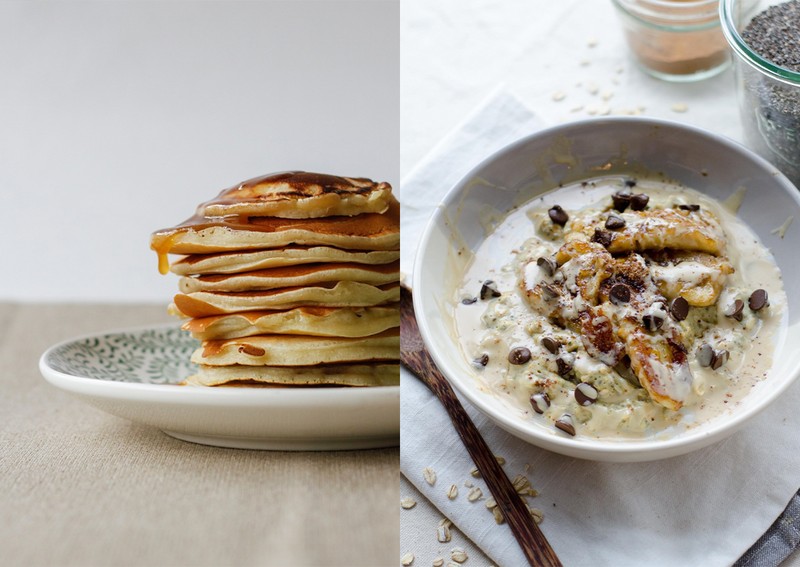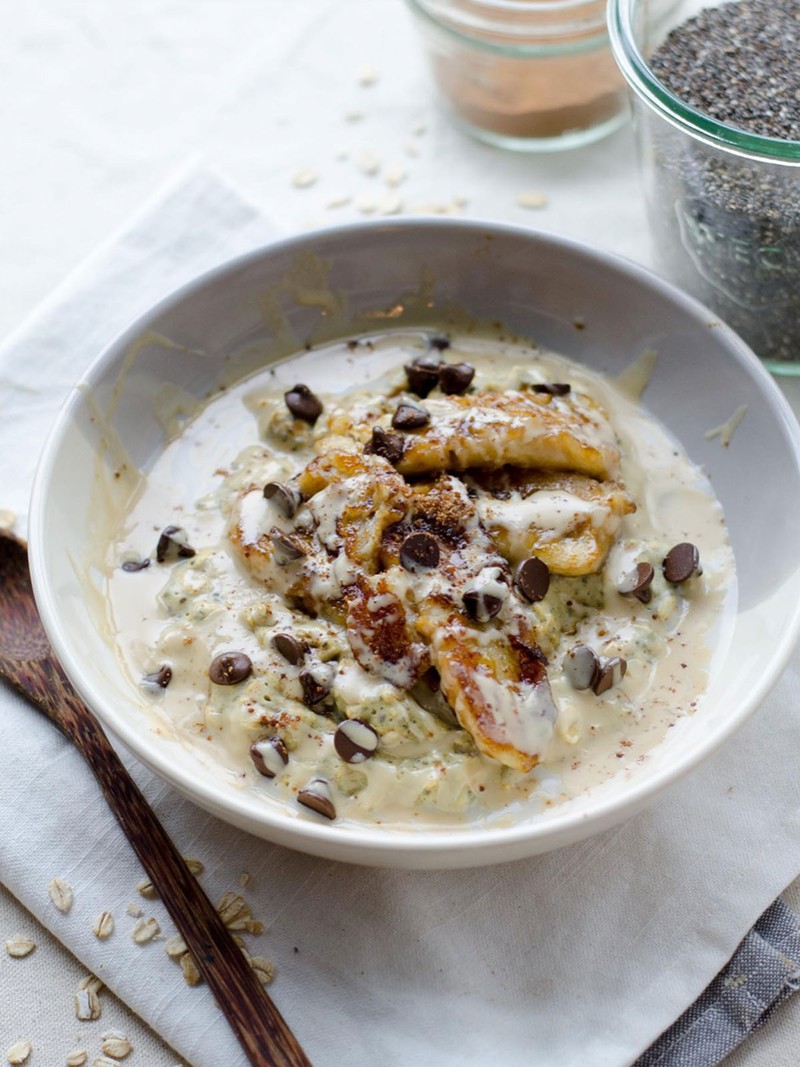Me & My Cycle: Leila Martyn
My PCOS journey started in my late teens. After years of dealing with unpredictable periods, I was determined to find out what was going on with my body. I made an appointment to see my GP and, after several blood tests, was diagnosed with PCOS. When I started trying for a baby at the age of 34, I quickly realised it wasn’t as straightforward as I thought it might have been. Over the next five years, I experienced six miscarriages. After my fourth, I couldn’t bear to hear another doctor tell me it was just bad luck. I was one of the 1% of women in the UK who suffer more than four miscarriages, and this made me wonder if I had the power to do something about it.
PCOS can cause low egg quality. Determined to find a solution, I came across a natural food supplement called myo-inositol, which is proven to support PCOS symptoms, including improving egg quality. After a few months, I felt more in control, and with the help of a doctor specialising in recurrent miscarriage, I fell pregnant. Since launching MyOva, it’s been incredible to be able to help so many women with PCOS, although I still feel frustrated that we’re taught so little in school about our cycle. For example, we are generally told all women ovulate on day 14 of their cycle, but this is far from the truth for everyone, especially if you have PCOS.
Being in tune with your cycle is so important. Because I’ve had PCOS my whole adult life, it’s only in recent years that I’ve had a regular cycle. However, if I’m burning the candle or not eating well, my cycle can become more prolonged and unpredictable. When this happens, I know my hormones are out of balance and I need to take time to get my diet and lifestyle back on track. I also find that if I don’t watch my diet in the run-up to my period, I tend to get very bloated.
I fast for 16 hours a day in the first two weeks of my cycle. The female body isn’t designed to fast every day throughout our cycle as our hormones have different needs throughout the various stages of the month. Reading Dr Mindy Pelz’s book, Fast Like A Girl, was eye-opening. In the follicular phase of my cycle, I try to finish dinner by 5-6pm and then fast until 10am or 11am the following day. Dr Mindy explains that for oestrogen to thrive during this time, we need to keep insulin low, so I try to stay away from high-glucose foods for the first half of my cycle. It’s been a game-changer. Pauline Cox’s book, Hungry Women, has also been incredibly helpful.
Blood sugar is closely linked to PCOS. I wish I’d known about eating for my hormones sooner. Throughout my 20s, I went on all sorts of diets in a bid to lose weight, but I didn’t realise PCOS causes insulin resistance, and that I needed to avoid sugar and high-glucose foods altogether. I recently took the Zoe test, using a blood sugar monitor to track my glucose levels for ten days. The results were eye-opening. Foods I thought were healthy, like overnight oats and my usual oat milk latte, sent my blood sugar rocketing. Raised blood glucose increases insulin levels, which affects PCOS symptoms, so it was a real shock that my seemingly healthy dietary choices were making my hormonal imbalances worse. After the Zoe test, I've also become more aware about how our gut health influences our hormones, so I've introduced more fermented food into my diet. I treat it as medicinal and have a bit spoonful of kimchi or sauerkraut before meals.
I am aware when my body is ovulating. When I was trying to conceive, I used ovulation sticks to determine the time of the month exactly. However, in recent years, I can feel my ovaries cramping to the point where I sometimes need pain relief. I can feel quite bloated, too, which may be due to some hormonal imbalance issue because traditionally, ovulation is the time when women are supposed to look and feel their best. This only ever lasts for 24 hours, and I know I’ll feel better the following day.

I’ve always struggled with PMS. In the last few years, I’ve found my PMS has gotten worse and can last up to five days before my period starts. It’s improving slightly since following Dr Mindy’s advice and changing my fasting window towards the end of my cycle. I try not to limit healthy carbs in the week before my period. Women need more glucose in their bloodstream to enable their bodies to build enough progesterone for their period to start. In the days before my period starts, I give myself more leeway in terms of what I can expect of myself. I usually feel drained and the need to slow down, and often postpone work projects to the following week, when I can approach them with more clarity.
When my period arrives, I always feel relieved, knowing I’ll feel more energetic within a few days. I try not to make any big plans during my period and limit socialising. I’m fortunate in that I work for myself and can decide my schedule. I try to work from home in the days leading up to and during my period, which makes a huge difference to how I feel. Botanical herbs also help. During my period, I drink a tea specially formulated by a herbalist – it includes dong quai to ease cramps, lemon balm to reduce bloating, dandelion leaf to aid digestion, and nettle leaf, which is a natural diuretic.
Period pants are a great alternative to tampons. I’ve always been concerned about toxic shock syndrome and the impact tampons have on the environment. I know I’m a bit late to the party, but I haven’t looked back since transitioning to period pants. I love the brand Wuka – it has a great choice of shapes and sizes.
Supplements keep me on track. Over the years, I’ve learnt how important it is to nourish your body with food that supports hormonal balance. A woman’s body is complex – it needs different nutrients throughout the months and years, and deficiencies are common. I’ve taken MyOva Myoplus every day for years. It’s been a game-changer at keeping my weight in check and keeping blood sugar balanced, so I snack and crave sugar less. I take this alongside MyOva Balance, which includes ashwagandha to help with stress; omega-3 oils to reduce inflammation; mill thistle to eliminate toxins from the liver; and vitamin D. I’ve also recently discovered the benefits of magnesium. I take Terranova Smooth Mag, which combines magnesium bisglycinate and vitamin B6 in a powder that I add to smoothies.
I feel the difference in my energy levels during the different stages of my cycle. I try to commit to a daily 15-minute run. Depending on my energy, sometimes I run for longer. It always makes me feel a hundred times better, although I don’t beat myself up if I don’t make it out, especially the week before my period when I have less energy. I also enjoy slower-paced exercise like Pilates – it’s a great workout choice in the last two weeks of my cycle, and pairs well with running to keep me strong and flexible.
Tracking my cycle has been invaluable. I’ve used various apps over the years, but my favourite is Stardust, which tracks your cycle with the moon. If we lived without artificial light, our period would naturally arrive on the new moon, and we would ovulate on a full moon. It’s fascinating how, when I lived with other women, our periods would sync. I read a great book called Do Less by Kate Northrup, which explains how we should prioritise our lives by the cycles of the moon. The first half of the cycle is about being out there in the world, socialising and going after opportunities. The second half is about hunkering down, resting and reflecting – it’s the time when our bodies are preparing for a potential egg to fertilise. Men live on a 24-hour hormonal cycle, and that's why a typical 9-5 works for them. As women, we are cyclical beings, and our mood and energy ebbs and flows throughout the month. We tend to beat ourselves up so that we can't shine every day when we aren’t designed to.
A good night’s sleep is key. I’ve never been a great sleeper, but until recently, I didn’t realise how a bad night’s sleep could be so detrimental for hormones. I’m especially mindful as disrupting the circadian rhythm can affect cortisol and insulin levels in women with PCOS. Keeping on top of stress plays a large part in this, especially as our adrenal glands take over from our ovaries when it comes to producing oestrogen post-menopause, meaning the stress we put on our bodies now can impact us in later life. If you do one thing for a healthier cycle, understand it’s impossible to constantly perform at 100% – we need to be kinder to our bodies and readjust expectations constantly throughout the month.
For more from Leila and MyOva, visit MyOvaCare.com.
DISCLAIMER: Features published by SheerLuxe are not intended to treat, diagnose, cure or prevent any disease. Always seek the advice of your GP or another qualified healthcare provider for any questions you have regarding a medical condition, and before undertaking any diet, exercise or other health-related programme.
DISCLAIMER: We endeavour to always credit the correct original source of every image we use. If you think a credit may be incorrect, please contact us at info@sheerluxe.com.


